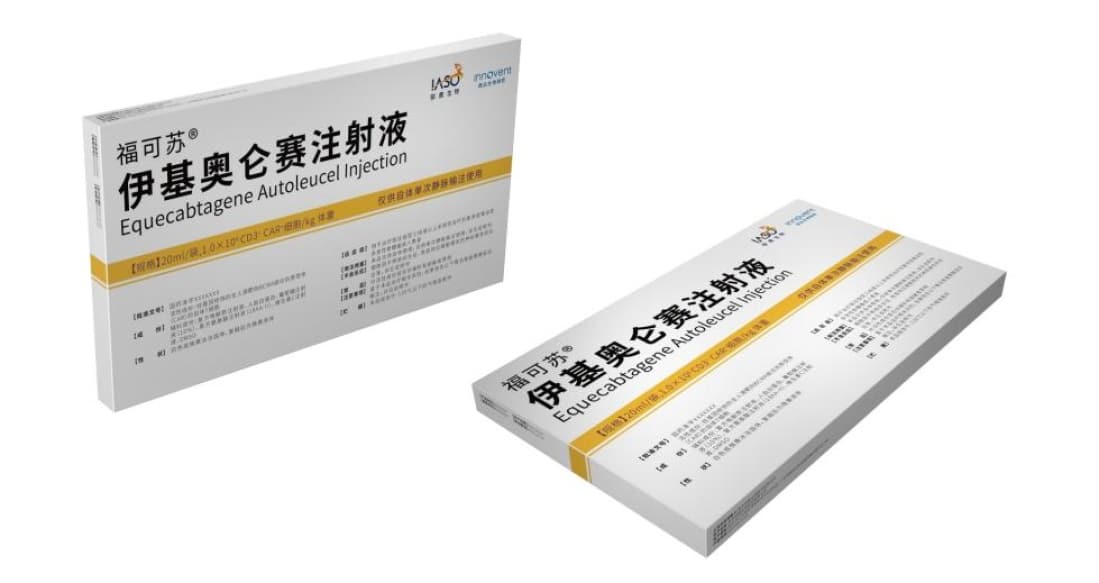Equecabtagene Autoleucel (CT103A): A Promising BCMA-Targeted CAR-T Therapy for Multiple Myeloma
Equecabtagene Autoleucel (CT103A): A Promising BCMA-Targeted CAR-T Therapy for Multiple Myeloma
The development of malignant blood disorders, such as multiple myeloma, is associated with immune deficiencies or functional suppression of T lymphocytes, leading to a decreased immune surveillance function. After induction chemotherapy reduces the tumor burden, a patient’s T lymphocytes are collected and “educated” or engineered to become “warriors” capable of attacking myeloma cells. These cells are then infused back into the patient’s body. Since myeloma cells specifically express the B-cell maturation antigen (BCMA) on their surface, BCMA can serve as a specific recognition target for anti-tumor therapy. It acts like a “missile” guiding the CAR-T cells to attack the myeloma cells.
On June 30, 2023, the Chinese National Medical Products Administration (NMPA) announced the approval of Equecabtagene Autoleucel injection, a BCMA-targeted CAR-T product co-developed by IASO Bio and Innovent Biologics, for the treatment of adult patients with relapsed or refractory multiple myeloma who have received at least three prior lines of therapy, including a proteasome inhibitor and an immunomodulatory agent.

Equecabtagene Autoleucel(CT103a)
Equecabtagene Autoleucel injection (IASO Bio development code: CT103A; Innovent Biologics development code: IBI326) is an innovative CAR-T product targeting BCMA. In February 2023, the FDA granted this drug Regenerative Medicine Advanced Therapy (RMAT) designation and Fast Track designation for the treatment of relapsed/refractory multiple myeloma.
According to a previous press release from IASO Bio, the marketing application for Equecabtagene Autoleucel injection was based on the results of a pivotal Phase 1/2 clinical trial. The overall response rate was 94.9%, with a complete response rate/stringent complete response rate of 58.2%, including patients with extramedullary multiple myeloma and those previously treated with CAR-T therapy.
Equecabtagene Autoleucel injection demonstrated sustained and durable efficacy: In the 101 evaluable subjects, longer follow-up data on efficacy and safety in multiple myeloma patients were presented, with the number of subjects receiving Equecabtagene Autoleucel injection increasing from 79 at the 2022 EHA congress to 103, and the median follow-up time extended from 9.0 to 13.8 months. This showed improved efficacy (complete response rate increased from 68.4% to 74.3%) with Equecabtagene Autoleucel injection. Notably, in subjects without prior BCMA CAR-T therapy who were followed for at least 12 months, the complete response rate reached 87.3%. The overall response rate was 96.0% (97/101), with 91.1% (92/101) of subjects achieving at least a very good partial response. All subjects in complete response were minimal residual disease (MRD) negative, and 82.4% maintained MRD negativity for more than 12 months, with the median duration of MRD negativity not yet reached.
Equecabtagene Autoleucel injection also demonstrated good efficacy in multiple myeloma subjects previously treated with CAR-T therapy. Among 12 subjects who had received prior CAR-T therapy, 4 achieved a complete response, with responses lasting more than 18 months in some cases.
Equecabtagene Autoleucel injection exhibited an excellent and manageable safety profile: Among the 103 subjects, 93.2% experienced cytokine release syndrome, but all adverse events were manageable, with the most common treatment-related adverse events being hematological toxicities such as cytopenias.
Currently, the reported pricing for Equecabtagene Autoleucel in China is 1,166,000 RMB, and prescriptions have gradually become available across the country.
